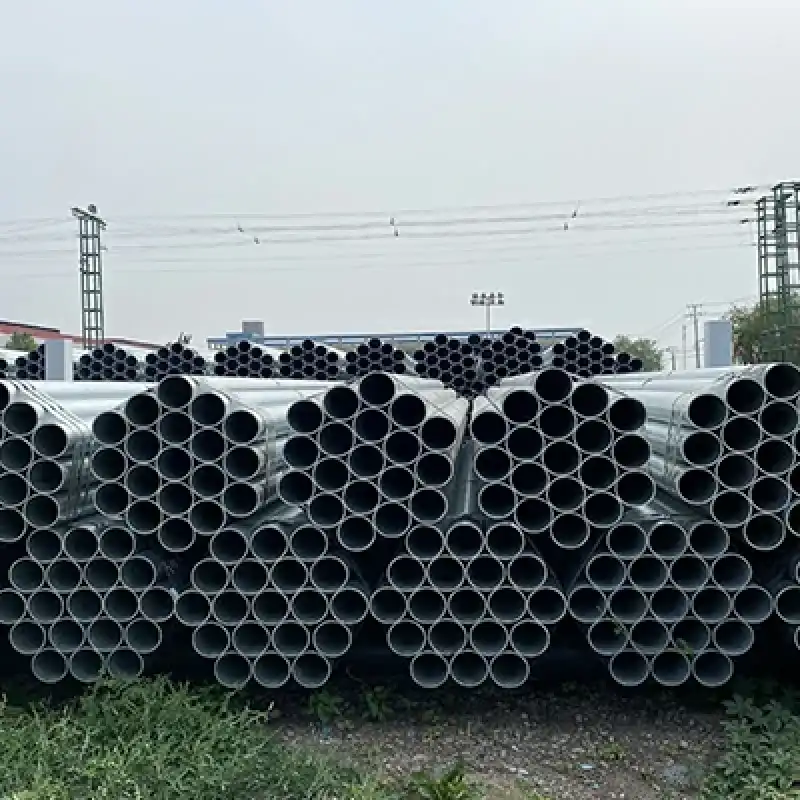The corrosion resistance properties of 2-inch black steel pipe (20 ft length) are generally lower compared to other types of steel pipes, especially when compared to galvanized steel pipes or stainless steel pipes. Here’s why:
- Lack of Protective Coating: Unlike galvanized steel pipes, which have a protective zinc coating, or stainless steel pipes, which have inherent corrosion-resistant properties, black steel pipes do not have any protective coating. This makes them more susceptible to corrosion when exposed to moisture, chemicals, or harsh environmental conditions.
- Exposure to Moisture: Black steel pipes are prone to corrosion when exposed to moisture, such as rainwater, groundwater, or condensation. The absence of a protective coating allows moisture to come into direct contact with the steel surface, leading to oxidation and rust formation over time.
- Atmospheric Corrosion: Black steel pipes installed outdoors or in exposed environments are vulnerable to atmospheric corrosion caused by oxygen, humidity, and airborne pollutants. Over time, exposure to these elements can accelerate the corrosion process and compromise the integrity of the pipe.
- Chemical Exposure: Black steel pipes may corrode when exposed to certain chemicals, 2 Inch Black Steel Pipe 20 ft Supplier acids, or corrosive substances present in the surrounding environment. Chemical reactions between the steel surface and corrosive agents can weaken the pipe material and lead to degradation over time.
- Internal Corrosion: In applications involving fluid transportation, such as plumbing or HVAC systems, black steel pipes may experience internal corrosion due to the presence of corrosive fluids, scale buildup, or microbiologically influenced corrosion (MIC). Internal corrosion can compromise the structural integrity of the pipe and lead to leaks or failures.
- Soil Corrosion: When buried underground, black steel pipes are exposed to soil corrosion, which can occur due to soil moisture, acidity, alkalinity, or the presence of corrosive ions. Soil conditions, such as high moisture content or low pH levels, can accelerate the corrosion process and cause deterioration of the pipe material.
To mitigate the corrosion risks associated with black steel pipes, various preventive measures can be taken, including:
- Applying external coatings or corrosion inhibitors to protect the pipe surface.
- Implementing proper drainage and ventilation to minimize moisture accumulation.
- Using cathodic protection systems or sacrificial anodes to prevent corrosion in buried pipes.
- Periodic inspection, maintenance, and repair to address any signs of corrosion or deterioration.
Overall, while 2-inch black steel pipes are commonly used for various applications due to their strength and affordability, it’s essential to consider their limited corrosion resistance properties and take appropriate measures to prevent corrosion and ensure long-term performance in corrosive environments.

